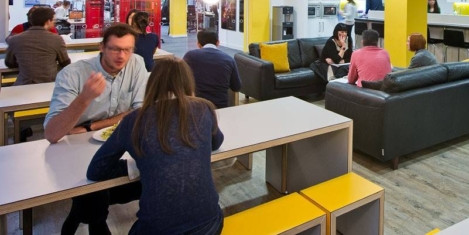September 29, 2018
It’s better for you to be busy + A new era for commercial property? + Changing behaviour by design
 In this week’s Newsletter; The commercial property sector heads off in a new direction; why busier people tend to look after themselves more; executives love Big Data but have no idea what to do with it; procrastination isn’t all bad – read why right now, don’t put it off; changing benhaviour by design isn’t as easy as some might think; a Shakespearean take on tech addiction; and how local innovation fuels global design trends. You can also download our most recent briefings on key topics, produced in partnership with Boss Design and BW Workplace Experts; dowlnload the new issue of Work&Place; visit our events page curated by Herman Miller, follow us on Twitter and join our LinkedIn Group to discuss these and other stories. And don’t forget to subscribe – the form is there on the left.
In this week’s Newsletter; The commercial property sector heads off in a new direction; why busier people tend to look after themselves more; executives love Big Data but have no idea what to do with it; procrastination isn’t all bad – read why right now, don’t put it off; changing benhaviour by design isn’t as easy as some might think; a Shakespearean take on tech addiction; and how local innovation fuels global design trends. You can also download our most recent briefings on key topics, produced in partnership with Boss Design and BW Workplace Experts; dowlnload the new issue of Work&Place; visit our events page curated by Herman Miller, follow us on Twitter and join our LinkedIn Group to discuss these and other stories. And don’t forget to subscribe – the form is there on the left.
























 Local authorities, which are on the front line of implementation when it comes to smart, place-based digital initiatives could be helped to deliver positive, sustainable citizen outcomes for their locality with the formation of a Digital Board – a new report claims. Launched at techUK’s
Local authorities, which are on the front line of implementation when it comes to smart, place-based digital initiatives could be helped to deliver positive, sustainable citizen outcomes for their locality with the formation of a Digital Board – a new report claims. Launched at techUK’s 









September 28, 2018
The horrors and harmonies of workplace hierarchy
by Monica Parker • Comment, Technology, Workplace design
More →